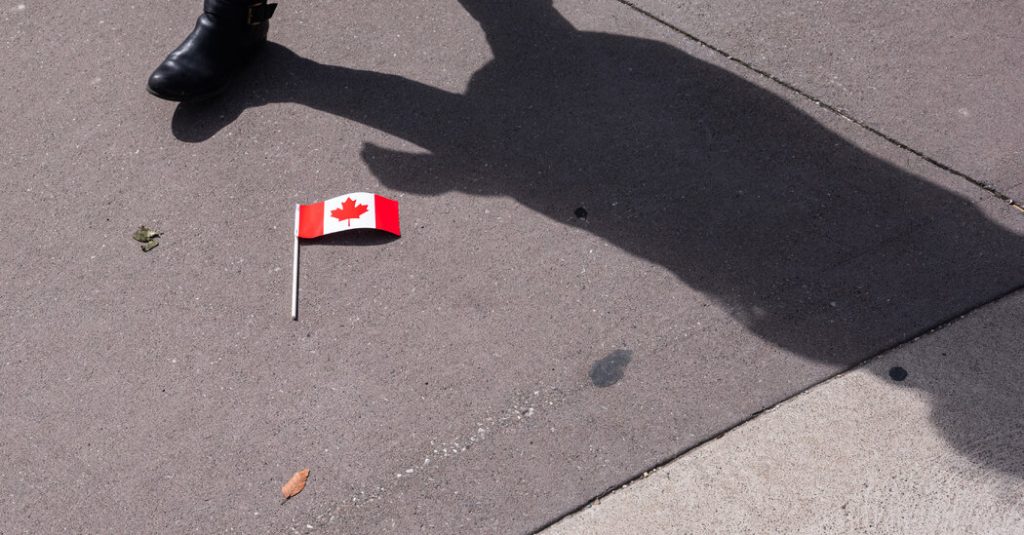George Bartenieff, an actor and producer who was a significant figure in the Off Off Broadway and experimental theater world as a founder of two theater groups, including the influential Theater for the New City, died on July 30 at his home in Brooklyn. He was 89.
His wife, the playwright Karen Malpede, said the cause was the cumulative effects of several advanced illnesses.
Mr. Bartenieff had credentials that might have led to a mainstream acting career. He was on Broadway before he was 15 and in the 1960s appeared there in plays by Edward Albee and John Guare. His smattering of film and television credits suggest that he could have made a character-actor’s career just out of playing a judge or a doctor on series like “Law & Order.”
But he much preferred to be involved in the kinds of socially conscious, form-bending plays staged in downtown Manhattan and, sometimes, out on the street.
When Judith Malina and Julian Beck of the Living Theater, the avant-garde repertory company they founded in the 1940s, presented Kenneth H. Brown’s scalding play about a Marine prison, “The Brig,” in 1963, Mr. Bartenieff was in the cast. He appeared in productions of the Judson Poets’ Theater, an experimental group in the same period. Later in the 1960s he worked with the director Andre Gregory at the Theater of the Living Arts in Philadelphia. After he returned to New York, he and his wife at the time, Crystal Field, founded Theater for the New City in 1971.
That group has been presenting adventurous theatrical works, many on social and political themes, ever since. After a divorce from Ms. Field, Mr. Bartenieff married Ms. Malpede in 1995, the year they and Lee Nagrin founded Theater Three Collective. It, too, has presented numerous plays since, many of them avant-garde, socially conscious works by Ms. Malpede, with Mr. Bartenieff in the casts.
The plays he was in or produced dealt with issues he was concerned about, like environmental degradation or the effects of war — generally not the kinds of themes that made for widespread commercial success. He worked occasionally in the mainstream world, taking small parts in “Law & Order,” “Rescue Me” and other television shows and movies like “Julie and Julia” (2009), but that wasn’t his comfort zone.
“More than fame or fortune, he wanted to make a difference with his art,” Ms. Malpede said by email. “He knew that the vision(s) of ‘Law & Order’ and so much else were same old, and he wanted the world to change.”
“For George,” she added, “the vision, the worldview, the poetics were the most important. We raided every savings account, pension, etc., we ever had to do the work we loved. As simple or as strange as that.”
George Michael Bartenieff was born on Jan. 23, 1933, in Berlin to Michael and Irmgard (Prim) Bartenieff, who were dancers. His father was Jewish, and as the situation darkened in Nazi Germany the parents went to the United States to try to establish a life, leaving George and a brother, Igor, in the care of an aunt.
“I’m half-Jewish, so I was hidden in the German half of my family,” Mr. Bartenieff explained in an oral history recorded in 2015 for the Primary Stages Off Broadway Oral History Project.
He attended a school in the Bavarian mountains that was somewhat removed from the turmoil elsewhere in Germany, and he remembered it fondly, especially the pageants the school would stage on various holidays.
“It made you aware that storytelling was as important as living,” he said of those spectacles.
His parents had settled in Pittsfield, Mass., using their dance expertise to start a physiotherapy business, and in 1939 they brought the boys over to join them. It was a time when German immigrants in the United States faced suspicion, something that The Berkshire Eagle, the local newspaper, sought to dispel with a 1940 article about the young newcomers.
“Neither child spoke a word of English when their parents met them at the pier in New York,” the newspaper said. “But in six months they’ve learned not only to speak English, but good, honest ‘United States.’ George is in the fourth grade at Mercer School; Igor, in the sixth. Either one can say ‘You bet’ and ‘OK’ quicker than you could yourself.”
A few years later, Mr. Bartenieff’s parents split up and the boys relocated to New York City with their mother, a devotee of the dance theorist Rudolf Laban, who would go on to found an institute in New York devoted to his ideas.
When he was 11, Mr. Bartenieff saw a friend perform in a play and determined that that was what he wanted to do. His mother enrolled him in a dramatic arts workshop.
“One day,” he recalled in the oral history, “a Broadway stage manager spoke to one of our teachers and said, ‘Do you have a boy who’s around 14? — because we need an understudy for a show that’s just started rehearsal.’”
He went in to read for the director, Harold Clurman, a famed figure in New York theater. During out-of-town tryouts, as Mr. Bartenieff told the story, his work as an understudy so impressed everyone that the boy in the part was let go and he was promoted to the main cast. The show was a comedy called “The Whole World Over,” and Mr. Bartenieff made his Broadway debut in it in 1947.
He was in a second Broadway show while still a teenager, the Lillian Hellman play “Montserrat,” in 1949. After graduating from high school he was accepted into the Royal Academy of Dramatic Art in London. He spent four years in England before returning to New York in the mid-1950s, landing in the midst of the Beat era.
“One of the things about that moment in New York was that there were so many people who were half mad and half inspired by their own visions,” Mr. Bartenieff said in the oral history. It was, he added, “a moment when you were constantly being surprised by something you’d never seen before.”
Soon he was among those creating surprises. One of the things that he and Ms. Field were known for once they started Theater for the New City was street theater, performed in unexpected places for unpredictable audiences. In 1985, Ms. Field recalled an early show performed at a playground in Brooklyn, in which Mr. Bartenieff played a purse snatcher and she portrayed a youngster who screams.
“I had always shut my eyes when I screamed because it had to be loud and from a sitting position,” she said. “When I opened them, the entire audience was on its feet, chasing George.”
In the mid-1970s, she and Mr. Bartenieff worked with the puppeteer Ralph Lee to turn his idea for a Greenwich Village Halloween parade into a major event that continues to this day.
In addition to his wife, Mr. Bartenieff is survived by a son from his first marriage, Alexander; a stepdaughter, Carrie Sophia Ciminera; a granddaughter; and two step-grandchildren.
Among his most ambitious projects with Ms. Malpede was “I Will Bear Witness,” a one-man play performed by Mr. Bartenieff that the two of them adapted from the diaries of Victor Klemperer, a German Jew who documented Nazi cruelties from inside the Dresden ghetto. After the play had its premiere at Classic Stage Company in Manhattan in 2001, they took it on tour, including to Berlin, Mr. Bartenieff’s birthplace. The experience resonated deeply with him.
“I don’t think Klemperer’s diary is your typical Holocaust literature, otherwise I probably wouldn’t have got past the first page,” he told The Irish Times in 2002, during the Berlin run. “So much love is in this diary, so much humanity, so much violence and poetry.”




